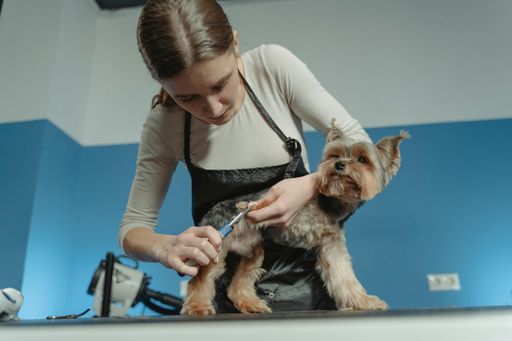German Shepherds are among the most beloved and recognizable breeds worldwide. If you're considering adding a German Shepherd to your family, you're looking at a journey filled with loyalty, intelligence, and energy. This guide delves into what makes these dogs unique and what you should expect, aiming to prepare you for the admirable commitment of adopting one of these noble canines.
Meet the German Shepherd
German Shepherds, or GSDs, are known for their versatility, often seen in roles ranging from the loyal family pet to a disciplined service dog. Their origin dates back to late 19th century Germany, bred for herding and protecting sheep. Today, their courage and trainable nature have put them on the frontline of many essential services.
Exercise Requirements: Staying Active Together
Don't underestimate the importance of daily exercise for your German Shepherd. A brisk walk, play sessions in the yard, or agility training—these active dogs need physical outlets to expend energy and maintain their mental health. Regular exercise also helps prevent common behavioral problems associated with under-stimulated dogs, such as digging, excessive barking, and chewing.
Lifespan: A Commitment to Longevity
German Shepherds have a life expectancy of 9 to 13 years. They are generally healthy, but like all breeds, they're prone to certain genetic conditions. Routine veterinary care, a healthy lifestyle, and preventive measures can significantly contribute to a long and fulfilling life. For more detailed insights into the factors that affect a German Shepherd's longevity, you can read about the German Shepherd lifespan on a comprehensive pet health blog.
Temperament: Your Faithful Companion
A German Shepherd's temperament is a blend of watchfulness, intelligence, and playfulness. They are profoundly loyal to their family and can be wary of strangers, making them excellent watchdogs. However, their protective nature should be paired with early socialization to ensure a well-rounded demeanor among people and other pets.
Common Health Issues and Prevention
While German Shepherds are robust dogs, they are predisposed to health issues like hip dysplasia, elbow dysplasia, and bloating. It is important for potential owners to be aware of these conditions and take preventative steps like proper diet, weight management, and regular check-ups with their veterinarians to mitigate these risks.
Training Needs: An Intelligent Investment
The intelligence of a German Shepherd is a double-edged sword. On the one hand, it makes them highly trainable; on the other, it means they require mental stimulation to keep from becoming bored and destructive. An untrained GSD can become too much to handle, so consistent training from an early age is imperative.
Finding Your German Shepherd: Adoption Options
When deciding to adopt a German Shepherd, consider looking into rescue organizations and shelters. Many purebred and mixed German Shepherds end up in rescue centers and need loving homes. Adopting from a shelter not only gives you the opportunity to give a dog a second chance, but you may also find an adult dog that is already trained and socialized, making the transition into your home smoother.
Diet: Fueling the German Engine
A German Shepherd's diet should be rich in protein and balanced in essential nutrients to match their energy levels. They typically need two meals a day, and the quantity would vary with their size, age, and activity level. It's essential to monitor their diet closely, as they can be prone to weight gain.
Grooming: More than Just a Brush
Known for their dense double coat, German Shepherds shed year-round and need regular grooming. Weekly brushing is necessary to minimize shedding and maintain a healthy coat. While they aren't high-maintenance in the grooming department, they do require routine checks for nails, ears, and dental health.
Conclusion: Is a German Shepherd Right for You?
Adopting a German Shepherd is akin to welcoming a new family member with an abundance of energy, loyalty, and devotion. It requires a commitment to training, exercise, and companionship. If you are ready for the challenge, you will gain an intelligent, loving, and courageous companion for life. Remember, there are plenty of other breeds to consider if you don't think the German Shepherd is a good fit, so do your research before you choose your new furry friend!



















